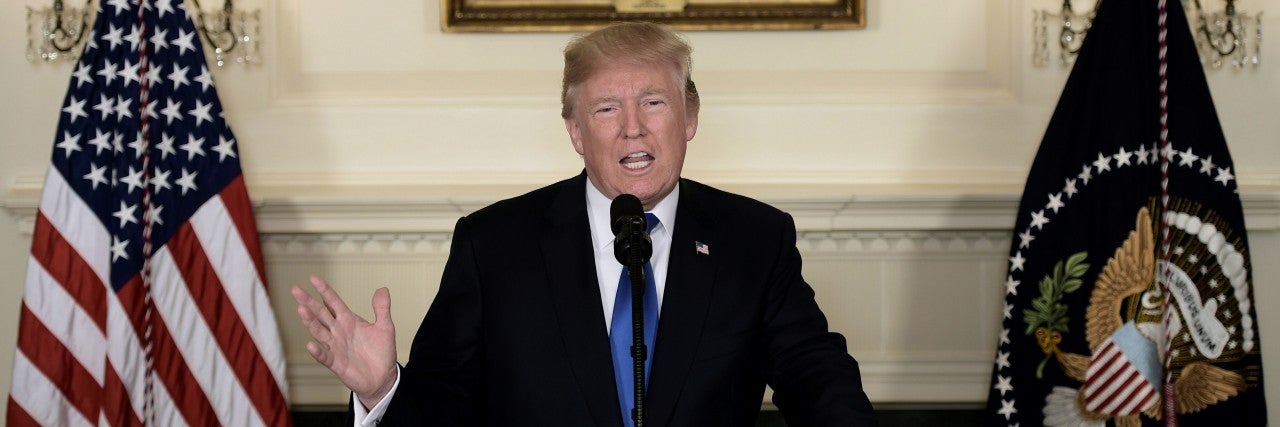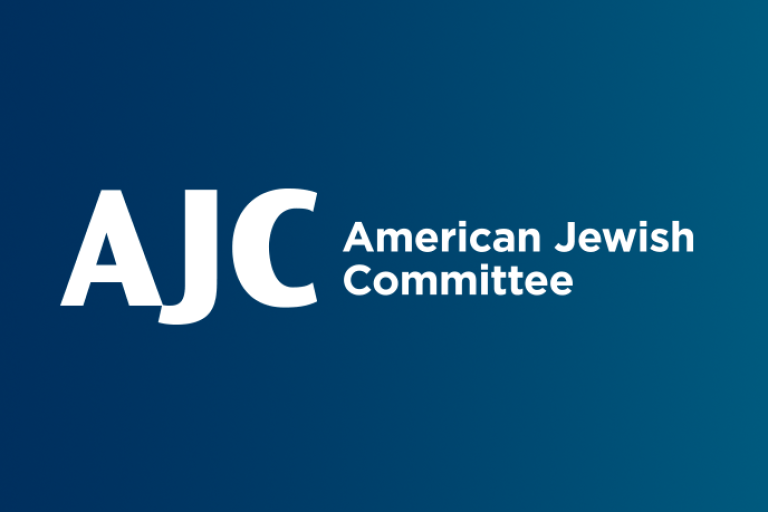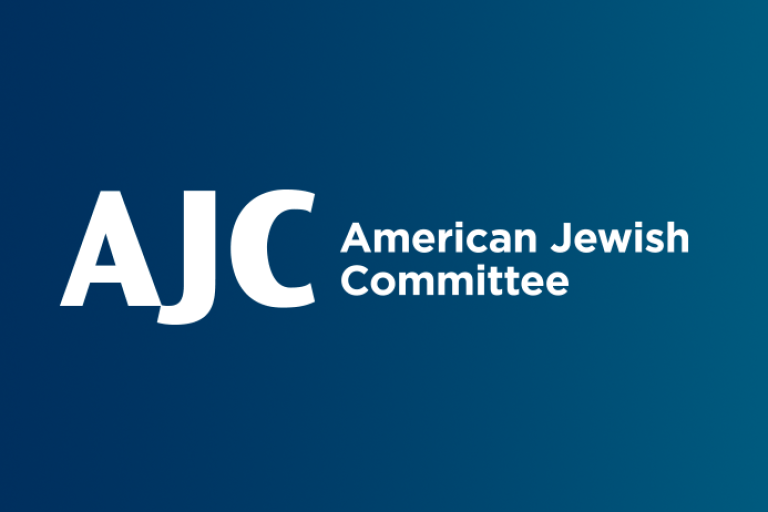October 16, 2017
Download a PDF of this backgrounder.
President Trump’s Announcement
President Trump on Friday (10/13) announced his intention not to certify Iran’s compliance with the nuclear deal, called the Joint Comprehensive Plan of Action (JCPOA), reached between the P5+1 (the five permanent members of the UN Security Council and Germany) and Iran in July 2015. But the President stopped short of unraveling it.
“We will not continue down a path whose predictable conclusion is more violence, more terror, and the very real threat of Iran’s nuclear breakout,” the President declared in a televised speech from the White House. He said he would ask Congress to establish trigger points, which could prompt the U.S. to reimpose sanctions on Iran if it crosses certain behavioral or threat thresholds. “In the event we are not able to reach a solution working with Congress and our allies, then the agreement will be terminated,” he warned.
The President accused the Iranian regime of sponsoring terrorism; developing, deploying and proliferating missiles; threatening American troops and allies; threatening freedom of navigation in the Arabian Gulf and the Red Sea; fomenting civil wars in Iraq, Yemen and Syria; and violating the human rights of its own citizens. He also charged that Iran is committing “multiple violations of the agreement,” and not “living up to the spirit of the deal.”
The immediate consequence of the President’s announcement is not that sanctions snap back into effect. Rather, it’s that the issue gets kicked back to Congress—giving the latter a 60-day window to reimpose Iran sanctions suspended by the nuclear deal using a special, expedited process.
What Is “Decertification?”
The JCPOA does not require the American President to certify that Iran is complying with the deal’s terms. That requirement is a matter of U.S. law, called the Iran Nuclear Agreement Review Act (INARA), which was enacted in May 2015 to give Congress oversight over an Obama administration agreement. INARA requires the President to publicly certify every 90 days that Iran is in technical compliance with the deal and that suspension of sanctions is “vital to the national security interests of the United States.” The latest INARA deadline was October 15, which is the reason President Trump made his decertification announcement on Friday.
The “decertification” won’t automatically nullify the deal. If the U.S. doesn’t impose new sanctions, it’s not technically in violation of its obligations under the agreement. Enacting new legislation would require a simple majority in both the House and Senate, and given the Republican control of both chambers that seems possible. However, congressional leaders have expressed reservations about reimposing sanctions that could instigate another major international crisis (in addition to the North Korean crisis), and divert Congress from other legislative priorities.
The administration could have chosen to kill the deal on its own, without Congress’s help. Every 120 days, the administration issues waivers to keep old sanctions from being reimposed. Skipping that step, the administration could have restarted sanctions unilaterally next January. However, the President chose not to do that. Instead, he has taken what has been portrayed as a “middle ground” between his own position in favor of withdrawing from the agreement completely, and that of congressional leaders and senior administration officials, who said the deal is worth preserving with changes if possible.
International Reaction
International reaction to President Trump’s announcement was prompt. “We encourage the U.S. administration and Congress to consider the implications to the security of the U.S. and its allies before taking any steps that might undermine the JCPOA, such as reimposing sanctions on Iran lifted under the agreement,” French President Emmanuel Macron, German Chancellor Angela Merkel and British Prime Minister Theresa May said in a joint statement.
In Brussels, Federica Mogherini, the EU foreign policy chief, said the Iran deal is an international agreement and “it is not up to any single country to terminate it.” She added: “It is not a bilateral agreement, it does not belong to any single country…. The President of the United States has many powers, but not this one.”
Russia said President Trump had no basis for disavowing the deal. “Iran is abiding” by the nuclear agreement, said Mikhail Ulyanov, a director at the Russian foreign ministry. “Everyone agrees with that. And an attempt to somehow heighten the tensions in this situation looks like unmotivated aggression.”
United Nations Secretary-General Antonio Guterres “very much hopes” the nuclear deal with Iran can be salvaged, his spokesman said. The spokesman further said that Guterres considers the deal to be a “very important breakthrough to consolidate nuclear non-proliferation and advance global peace and security.”
Also reacting to Trump’s speech, Yukiya Amano, the Director General of the International Atomic Energy Agency (the UN watchdog tasked with overseeing compliance), said that Iran was under the world’s “most robust nuclear verification regime.” “The nuclear-related commitments undertaken by Iran under the JCPOA are being implemented,” he said.
Iranian President Hassan Rouhani denounced President Trump and called the United States an outlier that had become “more lonely than ever” in the international community. “The statements of Mr. Trump are nothing but abuse and threats against the people of Iran,” he said. “An international agreement cannot be disregarded.” Rouhani made it clear that he would not renegotiate the terms of the deal.
Israel praised President Trump’s announcement, and so did Saudi Arabia. “President Trump has just created an opportunity to fix this bad deal, to roll back Iran’s aggression and to confront its criminal support of terrorism,” Prime Minister Netanyahu said in a statement.
Meanwhile, other Israeli personalities, including former Prime Minister and Defense Minister Ehud Barak, have said that the “nuclear deal, however bad it is, remains our best chance” to prevent Iran from acquiring nuclear weapons.
Given the highly critical reactions from the P5+1 partners and other international actors, it is apparent that reinstating the pre-JCPOA international sanctions regime would be extremely difficult.
What Next?
White House officials said that decertification was not meant to simply push Congress to reimpose sanctions against Iran. The goal, they said, was to lay the groundwork for legislation that would define what would provoke the U.S. to reimpose sanctions. In his speech, the President alluded to three such triggers: the deployment of international ballistic missiles by Iran, Iran’s refusal to negotiate the extension of the deal beyond the deadlines stipulated in it, and evidence that Iran could manufacture a nuclear weapon in less than 12 months.
But even if Congress were to enact such legislation (which is by no means certain), the question would still remain whether the other P5+1 members (especially the three EU members among them), and key industrialized nations such as Japan, Korea, Canada and Australia, would go along with such a strategy. The joint statement issued by Germany, France and the UK, and the tough comments made by the EU foreign policy chief Mogherini, raise serious doubts about the willingness of key U.S. allies to do so. The other P5+1 members, Russia and China, would almost certainly not cooperate. As for Iran, it has stated that it would not agree to re-negotiate the JCPOA.
Proponents of resumed sanctions argue that even countries that appear to reject the U.S. administration’s strategy will most likely reconsider their position when they realize that they have to choose between doing business with Iran (with a GDP of $412.2 billion) and with the U.S. ($18.57 trillion).
Skeptics point out that such tactics might backfire, as foreign countries might take measures to protect their companies against U.S. sanctions, and/or take counter-measures to penalize U.S. companies.
If Congress does not act and the President, consistent with his warning, terminates the deal, the U.S. will be in violation of the JCPOA. This could strain relations with America’s allies and isolate the U.S. diplomatically. Under such conditions, it would be extremely difficult to persuade even America’s closest allies to reinstate the international sanctions regime.
The prospect of U.S. exit from JCPOA followed by its imposition of potent extraterritorial sanctions—in the form of secondary and tertiary boycotts— against foreign companies doing business with Iran, sanctions that would rely on the powerful tools inherent in the central American role in the global financial system, could theoretically persuade other world powers to join forces with Washington and heighten pressure on Iran; in this scenario, the world would stand united against the Iranian threat, and would be in a strong position to demand Tehran modify its behavior and accede to new constraints on its nuclear program. Alternatively, critics have pointed out that such U.S. action could prompt a global trade war. Some analysts have suggested that if Iran were to respond to an unraveling JCPOA by withdrawing from the deal and resuming its nuclear weapons program, the U.S. could face the dire choice between taking military action against Iran and acquiescing to Iran’s nuclear ambitions.
AJC’s Position
Following are excerpts from a press release issued by AJC after the President’s announcement:
For AJC, the heart of the matter is addressing key issues that have long troubled us because they were not adequately covered, if at all, by the original agreement, and that led in the first place to our decision to oppose it in 2015, specifically: (a) Iran’s ballistic missile development, which continues aggressively and menacingly; (b) the sunset clause in the JCPOA, which means a pathway to the nuclear bomb no later than 2030, if not sooner; and (c) the weaknesses in the inspection regime because Iranian military sites are totally off-limits.
“In addition, it is abundantly clear, or at least should be, that those supporters of the JCPOA who argued that the agreement would moderate Iranian behavior were flat wrong in their prediction. To the contrary, Iran has only become still more emboldened in its destabilizing activities in the region—from Syria to Iraq, from Lebanon to Yemen, from Bahrain to Gaza. Nor has its abysmal human rights record in any way abated.
“At this point in time, whatever earlier views were, it is absolutely essential that the Administration, Congress, and our key allies in Europe, the Middle East, and Asia work as collaboratively as possible on the Iran threat. This is not, nor must it be allowed to become, about partisanship, legacy, or, as the Germans say, schadenfreude.
“Rather, it is about grappling with one of the most complex and high-stakes issues in the world today, and seeking to ensure that Iran does not flaunt the spirit of the JCPOA, clandestinely work around it, drive a wedge among allies, or, exploiting the flaws in the original deal, simply follow the long-term glide path to nuclear status that it was essentially given in 2015.”


